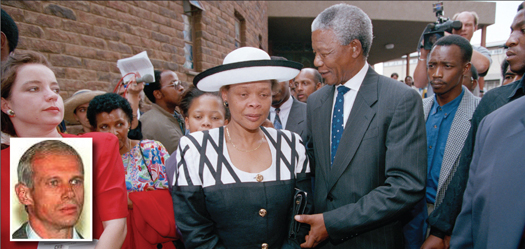ALB Micki
Tuesday, June 25, 2024
Global South
To phase out the use of the U.S. dollar and other ‘toxic’ currencies.
They ought to be reformed but reformation is unlikely because the powerful Global North nations benefit from the poverty of the Global South. Abusing its dominant position, the U.S. has done us a great favor.
The Global South countries are sick and tired of the hegemony and the abuse of the hegemony led by the U.S. and Europe and we’re determined to ensure that institutions like the IMF (International Monetary Fund) and World Bank become as obsolete as they are destined to become.
The dollar’s global role would plunge, and market disorder and volatility would explode. The malign scenario would be enormously harmful to global prosperity, including America’s ff the U.S. doesn’t keep its house in better order, dollar dominance will be the least of our worries.
Tuesday, June 18, 2024
3 Secrets to Weight Loss
Calories add up when we are cooking and constantly snacking or shall I say “tasting” food around us all day. Two food items that we sometimes find it hard to resist is cheese and bread. I personally have avoided restaurants in the past that constantly “keep a bread basket full in my face.” Admit, sometimes we just eat food because it is there. We should all try to make our mosques and our homes a “how to eat to live zone” that doesn’t tempt one to go against our discipline. Needless to say, after I disciplined myself from the bread basket (which is often filled with poor quality white bread), I was no longer tempted. Remember, the best and only bread we should eat is whole wheat bread, preferably wheat bread we make ourselves. On the contrary, why should we avoid eating a lot of cheese?
Not only is cheese high in fat, “Cheese is among the highest foods in salt content” states John Robbins in his book, “Diet for a New America” (p. 296). He states that “the Dairy Councils claims that the increased calcium from dairy products will lower blood pressure, but the truth is that such a decrease is minimal at best, and if obtained via dairy products, any such temporary benefits are more than outweighed by the increased development of atherosclerosis (the process by which arteries gradually accumulate fatty and waxy deposits on their inner walls–thus reducing the size of the openings through which blood can flow.) Their claim that eating salt does not raise blood pressure testifies profoundly to a lack of respect both for the truth and for the health of the American public. Hypertension patients (those with high blood pressure) can get almost immediate relief from some of the problems of high blood pressure when they cease to consume saturated fats and cholesterol.” (p. 296).
Advertisement
Unfortunately, a lot of the foods we snack on besides bread and cheese, are processed foods that have a high sodium or salt content such as potato chips and pretzels. We need to stay away from fried foods period. If we would just cut out our snacking, we could see an improvement with not only our blood pressure, but also our weight loss. If we have a habit of snacking, we need to replace our bad habit of snacking with a good habit like exercise. Recondition your mind. Instead of reaching for a snack because we are bored or nervous, go for a walk or perform some abdominal crunches (smile).
Exercise will help us feel better about ourselves than the act of snacking all day long. Exercising is our second key to weight loss. Some of the benefits of moderate exercise include: reduces negative feelings such as anger and anxiety, reduces stress, increase energy and sheds unwanted body fat. Basic stretching can help you reduce lower back pain, increase circulation and flexibility. Exercises such as yoga and Tai Chi help to increase “internal energy.” The wonderful combination focused movement and deep breathing exercises helps to relieve tension in your body and leave you with a sense of inner peace. I try to incorporate yoga exercises at the end of my high intensity workouts. (At the recent Singles Retreat in New York, we did an intense workout one day and had a wonderful yoga “cool down.” Everyone felt “re-energized” afterwards).
The third key to weight loss is “right thinking.” What is “right thinking?” Right “thoughts” are thoughts that are rooted in truth and bring light to others. Since every action is preceded by a “thought,” we had better be sure our thoughts are “right” or in line with the Will of God. In the book, Torchlight for America, the Honorable Minister Louis Farrakhan states, “Being righteous will give us peace of mind and power. When we act in accord with what is right we can lay down at night with the peace of mind that comes from knowing we haven’t done anything or anyone wrong. This is where the true and real power of our minds comes from. The ability to focus on something and summon the power of our being to bring into reality our vision, in this time period, is truly based upon our striving to be right”(p.100).
What do we think about ourselves? Think good thoughts about yourself and you will find yourself only wanting “the best of foods” for your “wonderful top soldier self” (Smile).
Parole For Anti-Apartheid Hero’s Killer? Victim’s Family Says ‘No!’
In this historic photo, African National Congress leader Nelson Mandela, right, comforts Limpho Hani, widow of Chris Hani, at a memorial held in Reiger Park Township, Boksburg, South Africa, on April 10, 1994. On April 10, 1993 Hani was gunned down outside his home by Polish immigrant Janusz Walus (insert) Photo: AP Photo/Lynne SaldkyThe wife of a slain anti-apartheid hero is raging against a court decision ordering the release of her husband’s killer on parole within 14 days. Limpho Hani, widow of Chris Hani, called the decision to grant parole to Janusz Walus “a sad day for South Africa.” She harshly rebuked the judge who made the ruling, calling her a racist. In a radio interview, Mr. Hani’s widow told talk show host Redi Tlhabi that the presiding judge had no right to tell her to forgive the killer and move on. Advertisement Jack_KnifedSA tweeted this transcript of the interview: “How dare that White woman tell me to get over it? Is she God? Was her husband murdered?” “I’m not upset‚ but highly irritated‚“ Mrs. Hani said. At the time of his death, on April 10, 1993, Martin Thembisile Hani, was the leader of the South African Communist Party (SACP) and chief of staff of Umkhonto we Sizwe, the ANC’s armed wing. He was shot at his Dawn Park‚ Boksburg‚ home. A neighbor alerted police which helped lead to quick arrests in the case that shocked the nation and almost derailed the handover to democracy. Mr. Walus, a Polish immigrant, was said to have received the murder weapon from Clive Derby-Lewis, a Conservative Party MP and a “rabid racist” according to local reports. Both were sentenced to death‚ but their sentences were later commuted to life imprisonment when the death penalty was outlawed. Mr. Derby- Lewis was released last year on medical parole after a diagnosis of terminal lung cancer. Lawyers representing Mr. Walus argued that he should be released on parole for the purposes of Ubuntu. A demonstration against the parole order is planned by the Gauteng ANC. The ruling for parole opens a raw wound among South Africans and has triggered a wave of editorials for and against. Daily Maverick essayist Sisonke Msimang in a piece titled “The power of refusing to give,” wrote: “Forgiveness plays an iconic role in our post-Apartheid national identity; those who forgive are revered as heroes of a special kind. More than any other trait, South Africans see forgiveness as part of the miracle of our transition to democracy. “Women in particular are expected not only to forgive, but also to mother. …” But, she added, “the power of not forgiving, in a context in which forgiveness is expected, is that you force difficult conversations and you disrupt the status quo. The power in Limpho Hani’s anger is that it rages against forgetting. It insists on being heard and it solidifies his place in our collective memory.” “In a plural democracy such as ours, one where so much time and energy has been put into forgiveness, the voices of the hurt and the outraged have a place too. Surely we can create space for the deep sadness that twenty years will not quell.”
Pandemic shaping economic, social climate of East and Southern Africa
In many East and Southern African countries, local, regional and national lockdowns due to the Covid-19 pandemic have been extended, reported Equinet. “Their impacts raise questions on their sustainability. The conversation inevitably turns to when and how countries will exit them. South Africa’s President Ramaphosa said recently in introducing their risk adjusted strategy: ‘We cannot sustain a nationwide lockdown indefinitely. Our people need to eat, and earn a living. Companies need to trade.’”
Formally recognized in 1999 at the South African Development Community Health Ministers meeting, Equinet is a regional network dealing with health-related issues, of Eastern and Southern African countries, said Rangarirai Machemedze. Machemedze coordinates the Trade and Health Program at the Southern and Eastern African Trade, Information and Negotiations Institute which is an organization in the Regional Network for Equity in Health in East and Southern Africa (Equinet).
During a phone interview, from his office in Zimbabwe, Machemedz, who has authored and co-authored many papers, policy briefs and articles on different issues on trade and health-related themes, told Africa Watch, that they’ve been compiling information, and looking at that info from “different angles” on how the pandemic is effecting Eastern and Southern Africa.
“Particularly with regards to employment issues, livelihood issues, and perhaps looking into the future, how this Covid-19 pandemic is going to shape the economic (and) social activity of people,” he said.
Advertisement
Machemedz who holds graduate degrees in globalization and governance from the University of Hull (UK), a post-graduate qualification in advanced development economics and policymaking from the Norwegian-based institute, a degree in public relations, and a graduate degree in mass communications said part of Southern Africa’s concern is having “undergone a systematic process of deindustrialization, starting from the period of structural adjustment programs in the 1980s, which moved into the 1990s and as a result of that a number of industries within the region have closed.”
He said this is also what happened in East Africa. “This has planted the people into a vicious cycle of poverty. Most people lost their jobs and they went into the informal sector.”
A 2017 study, “Zimbabwe is Currently Experiencing a De-Industrialization Trend. Discussing the Causes of De-Industrialization in Zimbabwe and Offering Suggestion on How the Country Can Reverse the Trend,” by Anthony Tapiwa, Mazikana, highlights the deindustrialization trend in Zimbabwe. This trend can also, in many instances, be found in other Southern and East African countries.
“Many developing countries like Zimbabwe are experiencing premature deindustrialization… The conventional explanation for employment deindustrialization is based on differential rates of technological progress. According to the report by the United Nations, Zimbabwe has suffered large-scale deindustrialization since 1995 that has condemned the bulk of the population a grinding subsistence life as communal and resettlement farmers,” the report states.
“Since 1995 Zimbabwe has experienced a process of deindustrialization with the large majority of the people becoming largely dependent on communal and resettlement agriculture, a sector where there is high poverty prevalence,” the report continued in part.
Cut short during this coronavirus pandemic migrants have been seeking employment across Africa’s porous borders.
The history of Africa’s migrations defined by colonial masters, borders for work, education, social-cultural interactions and other reasons over the centuries is a matter of record. According to the latest Equinet Covid-19 brief: “Migration has been one way in which households have secured employment and incomes, and migrant labor has been a key, if sometimes buried feature of the economies in the (East and Southern African) region. For example, South Africa as a regional migration hub has an estimated 4.2 million migrants, primarily from neighboring countries.
It continues, “It is estimated by IOM (International Organization for Migration) that over 11 million Mozambicans are living abroad, with South Africa one of the top destinations, working in mining and farming jobs, with about 24,000 Mozambicans working in the mining sector. In Mpumalanga province alone, 2004 estimates indicated some 80,000 Mozambicans working in farms there.”
Machemedz said since Zimbabwe’s 1980 independence, which he also attributes to many other African countries, “We did not really think of making massive investments in the economic and social infrastructure for our people to really enjoy the political independence that they wished for and they got.”
This could be a reference to the land expropriation, which translated into economic exploitation by their White colonial masters that Zimbabwe and South Africa have similarly experienced. This also includes most Southern African countries, including Angola, Botswana, Lesotho, Madagascar, Malawi, Mozambique, Namibia, Swaziland and Zambia.
“The countries of southern Africa share similar histories of colonization and dispossession, histories that continue to shape current patterns of land tenure and administration. Most of the countries in the region have been through a phase of liberalization and market reforms, or market-related land, redistribution programs, and since the 1990s new land laws have been passed in several countries, which tend to have been relatively weakly implemented and enforced,” noted the “Review of Land Reforms in Southern Africa.”
“Covid-19 pandemic has actually given us another chance to reflect as to what we really need as an (African) people. And I think that we have been driven to the conclusion that it is always better to invest in the common good of the people rather than to privatize knowledge, privatize issues (and) becoming rugged individualist; it doesn’t work,” Machemedz said.
Leaving urban centers and returning to rural areas may be a blessing in disguise, he added.
“There is a need for a holistic approach to… development strategies,” explained Machededz. “We should apply a bottom up community approach.” He firmly believes, the way toward development is “utilizing local resources and the local knowledge we have in order for people to realize they’re developmental potentials.”
Machededz referenced the press reports that mentioned a ground swell of persons living in urban centers returning to their ancestral or rural homes.
Responding to the question of why people were returning to their rural homes, Machededz responded, “I think this is an automatic response.” People being challenged by the coronavirus pandemic and the fact that there was no way they could safely socially distance themselves, and stay locked down, they decided to move back home,” he explained.
The big lesson in the return is “don’t forget your roots, don’t forget where you came from and where you came from that’s actually where you need to invest,” he said.
He believes this is where subsistence farming is sacred. What’s needed is assisting those returning to rural communities develop their “agricultural activity.”
“We have to invest in those areas (which also includes) … keeping chickens, raising cattle.”
Follow Ck on Twitter @CiycKe
Subscribe to:
Comments (Atom)
Eat right and exercise
Photo: I was having a conversation about how wonderful it would be to have “supreme” health. How can I have the best of health and be in ...

-
Dogs have more than 100 million sensory receptor sites in the nasal cavity. (photo credit: Albert Arhó ) Dogs spend much time smelling eve...
-
Good morning, Amid horrific images from natural disasters and war around the world, many are using the power of their dollar to lend a hel...
-
0 seconds of 2 minutes, 17 seconds Volume 90% Alb Muhammad The world has reacted angrily to a shocking plan by US President Donald T...








